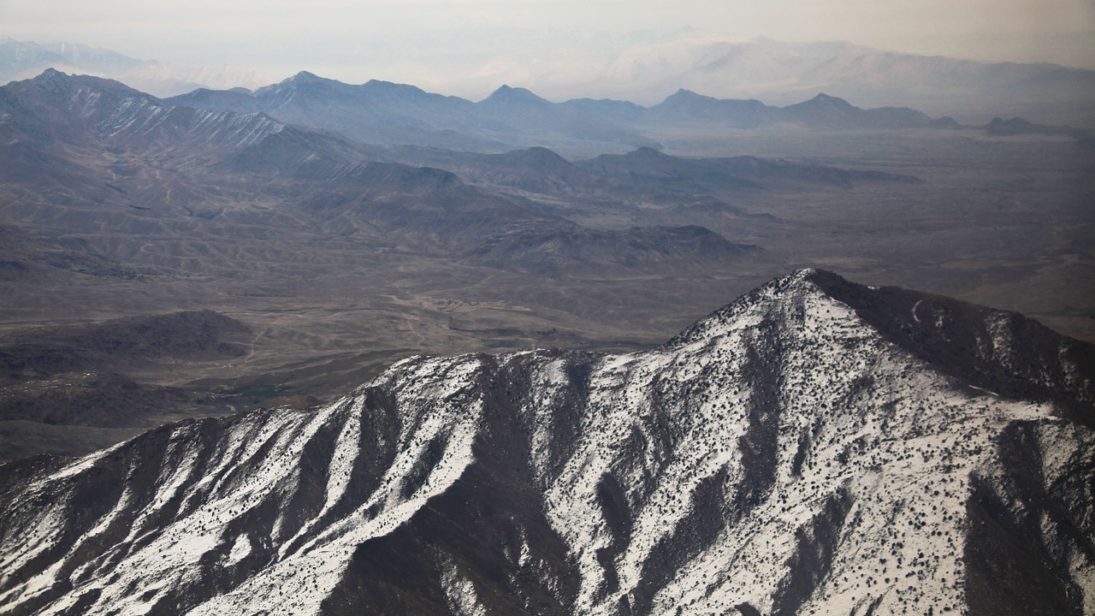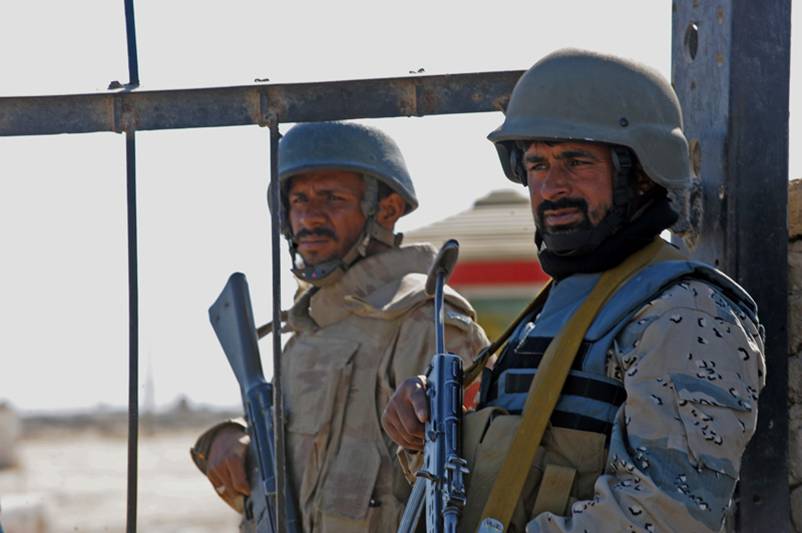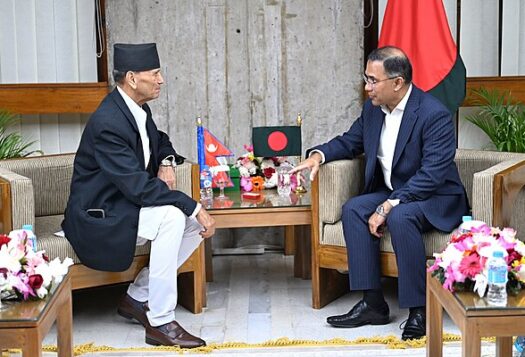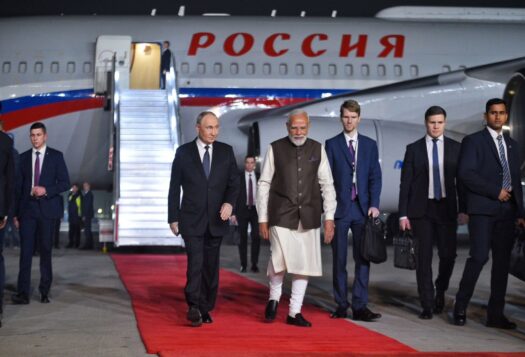
Pakistan, Afghanistan, and Iran lie at the crossroads of South Asia, Central Asia, and the Middle East, granting these three countries opportunities for immense economic cooperation and military potential. While the neighbors have occasionally signed bilateral agreements to improve their connectivity and coordination – including agreements on border crossing points, barter trade, and counter terrorism efforts – a multitude of challenges have prevented the three from fully realizing their potential for regional development. As Afghanistan, Pakistan, and Iran face economic meltdown and security threats, trilateral economic ventures and military assistance can help stabilize each country and the broader region.
Currently, all three countries struggle with the international implications of their domestic political choices. The Taliban’s control over Kabul has caused significant sociopolitical changes in Afghanistan. The economy has floundered, women are banned from education, and public flogging and human rights abuses have increased. In Pakistan, political instability continues as successive governments have failed to address a looming economic crisis and rise in terrorist attacks. The Iranian economy has been battered by international sanctions leading to high inflation and devaluation of its currency.
These three countries can overcome longstanding domestic and international issues among them by focusing efforts on flourishing border trade, trilateral efforts to combat counter-terrorism, and enhancing people-to-people contact.
The triangle is further strained by border disputes, sectarian violence, terrorism, and proxy conflicts. For instance, the Pakistan-Afghanistan border has been repeatedly closed due to heavy fire exchange between Pakistani border guards and Taliban members. Similarly, the Pakistan-Iran border is saddled with cross border terrorism. Whereas, the Afghanistan-Iran border witnessed large-scale clashes over territorial water disputes between the two countries.
These three countries can overcome longstanding domestic and international issues among them by focusing efforts on flourishing border trade, trilateral efforts to combat counter-terrorism, and enhancing people-to-people contact. Some of the recent bilateral efforts include the barter trade agreement between Pakistan, Afghanistan, Iran and Russia, the trilateral efforts of Pakistan, Iran, and China on counter terrorism, and the recent facilitator role of Afghanistan in dialogue between the TTP and Pakistan. More robust and peaceful border exchanges facilitated by stronger people-to-people relations will increase economic output for all countries in the region and bring peace and prosperity to South and Central Asia.
Challenges to the Tripartite Relationship
Despite the shared history and culture that bind Afghanistan, Pakistan, and Iran together, recent geopolitical events have strained the potential for trilateral cooperation. While porous borders allow for communities along the border to engage in trade, these regions are often strife with malign actors. In addition, Afghanistan has refused to recognize the official status of Durand Line, fueling distrust and conflict between Islamabad and Kabul. Pakistan has fenced sections of the Durand Line, which according to a study, will effectively reduced cross border terrorist incidents. Disagreements over border delineation have led to heavy exchanges of fire between the Afghan Taliban and Pakistani border guards, precipitating the shutdown of key border crossing points at Torkham and Chaman. The closure of border deprived the local community of their businesses.
Similarly, challenges remain along Iran’s borders with Pakistan and Afghanistan. The Iran-Pakistan border is situated adjacent to Pakistan’s Balochistan region, where Baloch separatists advocate for the establishment of “greater” Balochistan encompassing areas of Pakistan, Iran, and Afghanistan. Iran perceives insurgency in Balochistan as a national security threat because of the aligning interests of Baloch living on both sides of the border. The previous regime in Afghanistan provided sanctuary to Baloch insurgents but the new regime in Kabul has yet to outwardly reject the group. Moreover, Iran and Afghanistan clashed on their shared border resulting in the death of one Afghan and two Iranian soldiers. Iran has also been accused of providing support to Shia sectarian groups in Afghanistan and Pakistan to fight in Syria. Whereas, Iran claims that Jundallah, a Sunni sectarian group, receives financial and tactical support from Pakistan.
Terrorism in the region also constricts relationship building among Pakistan, Afghanistan, and Iran. Due to a lack of trust, the three countries have placed blame on each other for harboring terrorist groups. Tehreek-i-Taliban Pakistan (TTP), which operates in areas straddling the Afghanistan-Pakistan border receives support from the Afghan Taliban. The Afghan Taliban based logistic and financial networks in Pakistan during the U.S. War in Afghanistan. Pakistan alleges that the TTP is conducting terrorist activities from Afghanistan, including the recent attack on a mosque in Peshawar, which killed more than hundred worshippers. Moreover, Baloch separatists and Sunni extremist groups operating in Pakistan have been involved in various deadly attacks inside Iran, such as during a terrorist incursion that killed six Iranian guards when the group sought to infiltrate Iran. On the other hand, Pakistan alleges that terrorist activities are conducted from Iranian soil, including the recent attack on security convey in which four Pakistani security personnel were killed. Although the three countries have their reservations regarding cross border terrorism, they need to make joint counter terrorism policies to avoid non-state actors in maligning states’ relations.

Building Cross-Border Relationships in the Region
Regardless of these challenges, Pakistan, Afghanistan, and Iran maintain deep historical, cultural, and religious ties that could give strength to their relations. They are Muslim-majority countries that share similar Islamic traditions, values, and customs. For the better of trilateral relations, the tripartite need to focus on resolving the above-mentioned challenges to their relations. Pakistan and Afghanistan should address their border issue through negotiations and revive the idea of soft border once peace returns to Afghanistan.
Pakistan and Iran can adopt a threefold solution to the Baloch insurgency including negotiations with insurgents, addressing their grievances, and cracking down on those militants who are not willing to negotiate. The three countries can work jointly on matters of intelligence sharing, strengthening border security, and eliminating support to cross border terrorists. There is a need for a trilateral institution in which Pakistan, Afghanistan, and Iran can effectively address their mutual issues. For instance, the China-Pakistan-Afghanistan Foreign Ministers’ Dialogue provides a platform for these three countries to discuss joint regional threats. Recently, Pakistan, Iran, and China held their first trilateral meeting on counter terrorism, in which they agreed to adopt a comprehensive strategy against prevailing terrorist activities in the region. Pakistan, Iran, and Afghanistan should devise a similar platform to establish indigenous plans to combat terrorism in their region.
Creating a More Comprehensive Trilateral Relationship
Cross-border trade is a catalyst for greater relations among these three countries. Last year, the bilateral trade between Pakistan and Iran reached an all-time high of USD $2 billion, and both countries have committed to increase annual trade to USD $5 billion by 2030. It is noted that the drastic increase in bilateral trade between Iran and Afghanistan has been a result of the opening of two new border crossing points. Pakistan, Afghanistan, Iran and Russia have agreed on barter trade on specific goods which will allow them to bypass western sanctions. Iran and Pakistan are working on finalizing the Free Trade Agreement (FTA), and earlier both countries had signed the Preferential Trade Agreement (PTA) which provided concessions on tariffs. The three countries need to work on building free trade zones along their borders to increase business opportunities.
Stronger trilateral cooperation will allow the three countries to overcome their financial strains and fight terrorism.
The geographical proximity of Pakistan, Afghanistan, and Iran has the potential to create strong economic ties. In 2020, Pakistan and Iran opened the Gabd-Rimdan border crossing point and in 2023, the Mand-Pishin crossing point. They trade oil commodities, electricity, edible products, fresh fruits, iron, and steel. Taliban Foreign Minister Amir Khan Muttaqi agreed to increase cross-border trade with Pakistan during his visit to Pakistan and Iran and Pakistan have great potential of religious tourism. Each year, almost 700,000 Pakistanis pay homage to sacred places in Iran. Pakistan and Iran are working to finalize the “Ziarat Policy” which aims to boost religious tolerance with the help of religious tourism.
For centuries, this crossroads region lived peacefully with strong economic connectivity. It is essential that Pakistan, Afghanistan, and Iran explore their potential and work for collective development. Stronger trilateral cooperation will allow the three countries to overcome their financial strains and fight terrorism. Now that Iran and Saudi Arabia have signed a rapprochement, Pakistan, Afghanistan, and Iran can focus on combatting sectarian conflict. The international community must also stand with empowering trilateral relations as it will provide the opportunity to effectively fight transnational terrorist groups like Islamic State and Al Qaeda. China is already working on building strong economic ties between the tripartite by making Afghanistan and Iran part of China-Pakistan Economic Corridor (CPEC). While fewer opportunities appear likely from the United States and India, peaceful and prosperous relations between Pakistan, Afghanistan and Iran must be prioritized in the region.
Also Read: Implications of the Iran-Saudi Deal for Pakistan
***
Image 1: Afghanistan via Pxhere
Image 2: Afghan-Pakistani at the Friendship Gate in Spin Boldak via Wikimedia Commons


